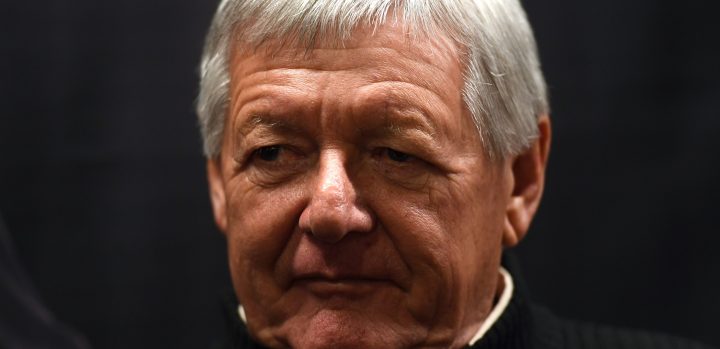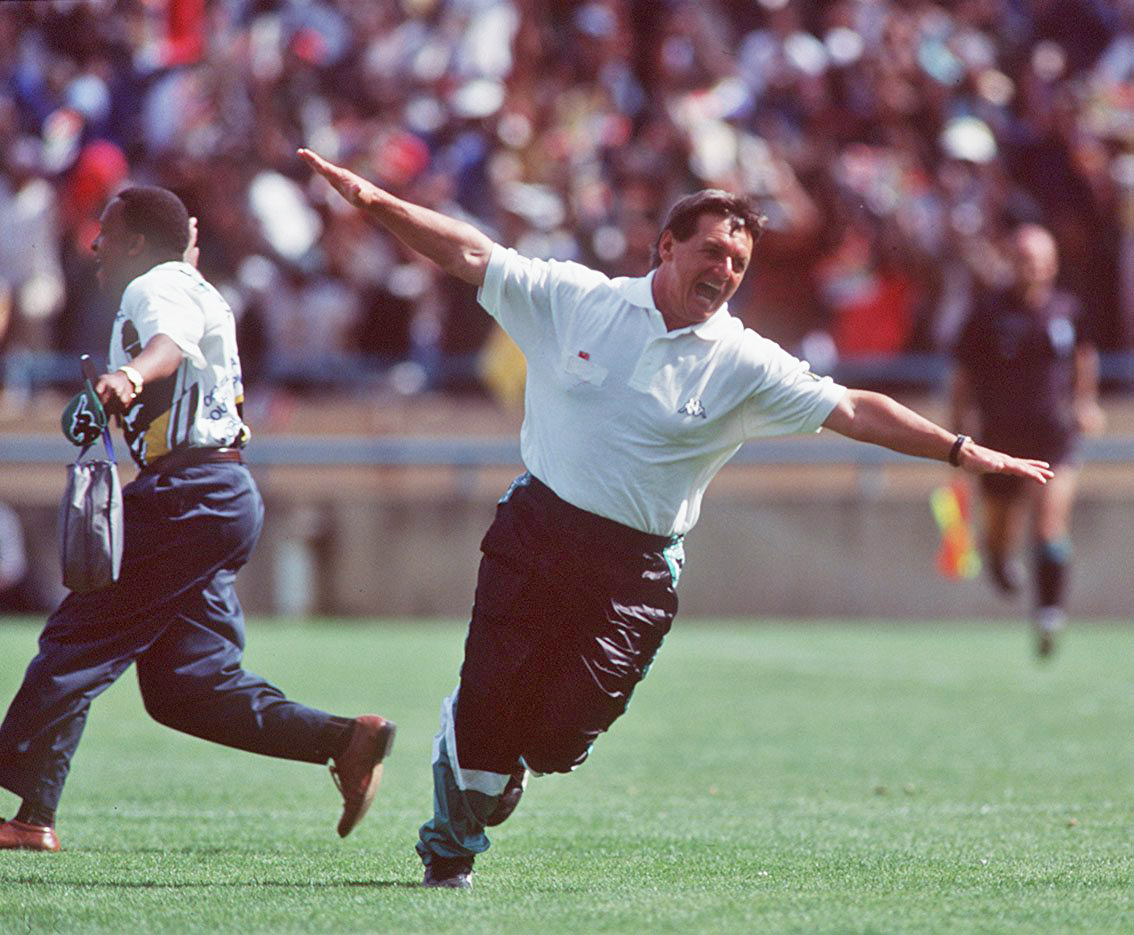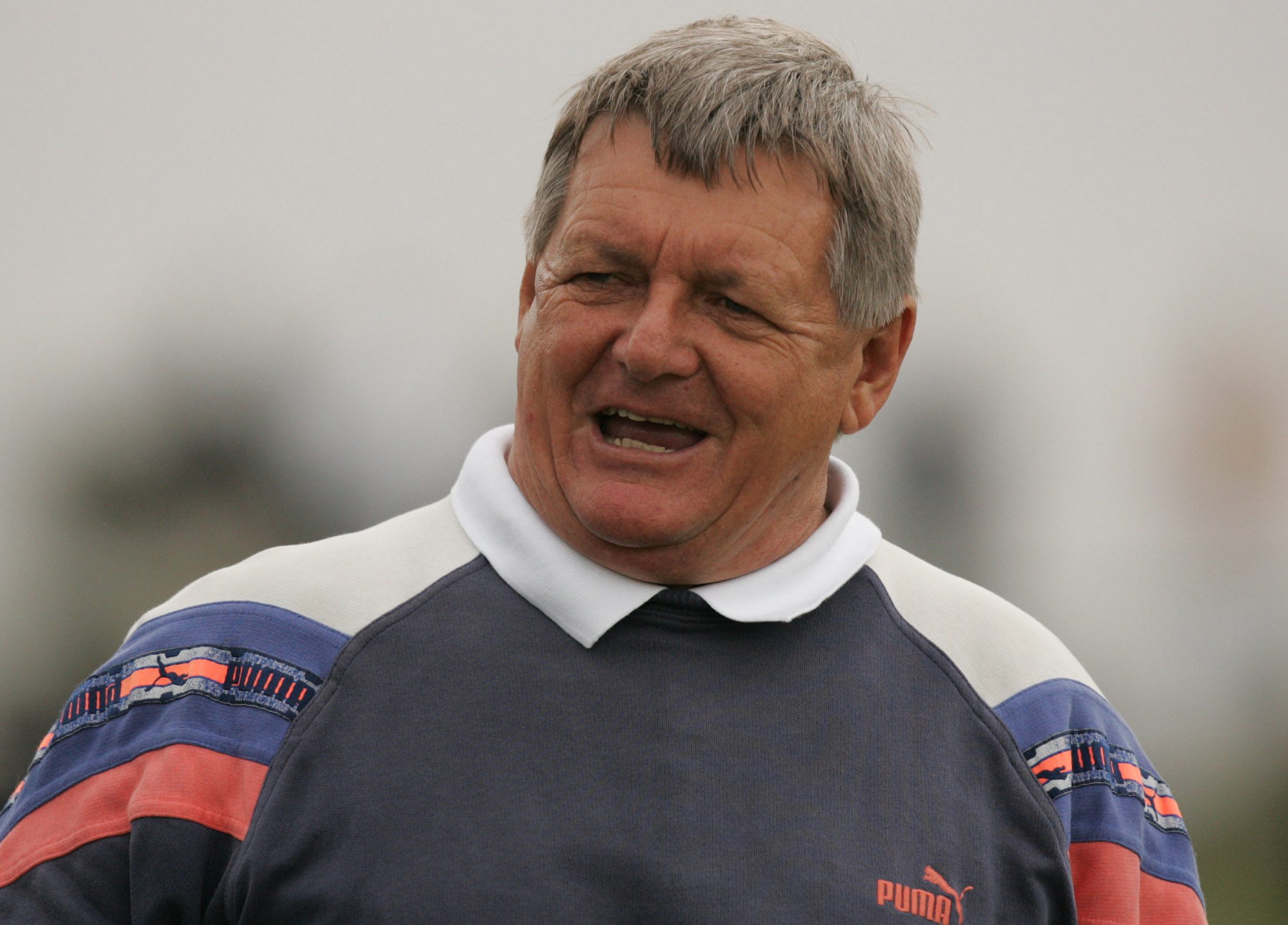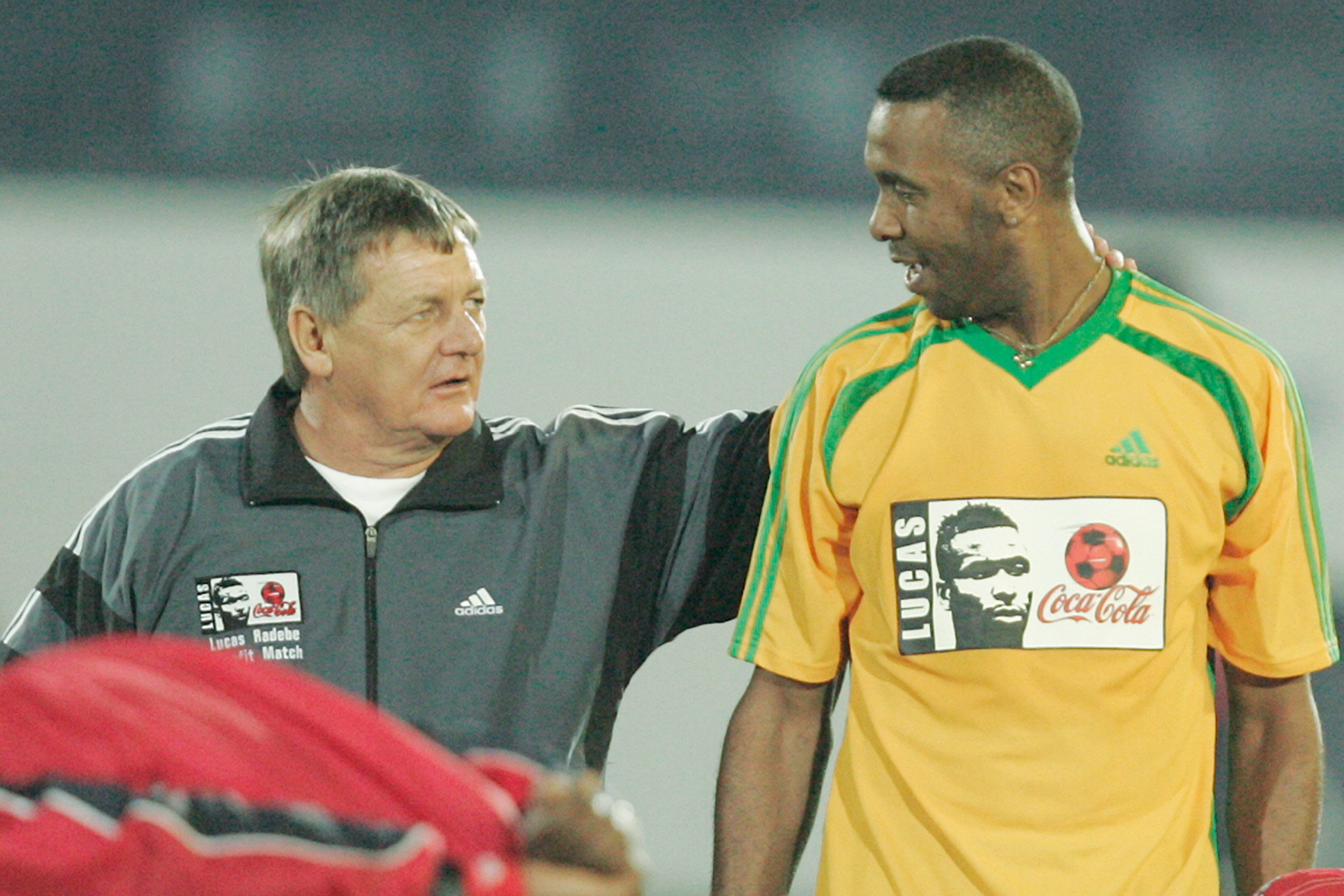TRIBUTE
Ex-Bafana coach Clive Barker’s infectious enthusiasm and player pride made him one of the greats

Former Bafana Bafana coach Clive Barker died at the age of 78 on Saturday after a brief battle with Lewy body dementia.
Clive Barker always had an impish grin and a love of dressing room banter, and just being around “his boys” would have him beaming with pride. All the other trappings of sporting success held little interest for the fabled Bafana Bafana coach, who passed away on Saturday.
He cooed like a mother hen over the skills of Doctor Khumalo, loved the mischievous side of Mark Williams and revelled in the talent of John “Shoes” Moshoeu. They were just three of what must be hundreds of footballers who passed through his hands in a storied career that took in both international and club success.
Clive, who would have turned 79 next week, will rightfully be remembered as the most successful coach this country has seen, for winning the Africa Cup of Nations in 1996 and qualifying the country for a very first World Cup appearance in France two years later.
He also won the league title with Durban City and Bush Bucks, and had cup success with AmaZulu and Santos in an almost 40-year coaching career, which was accidental in its inception but fulsome by its close in 2015.
But he will be best remembered for that infectious enthusiasm that accompanied everything he did, staying with him throughout his career even as he moved from the anonymity of the Durban football scene to the top of the pile in Africa.

Clive Barker developed a trademark celebration display. Here he celebrates Phil Masinga’s goal in 1996 to take Bafana to the World Cup. (Photo: Tertius Pickard / Gallo Images)
Personal touch
He touched most people he met, me included. I was the soccer reporter on Durban’s Daily News in 1985 when Barker’s Bush Bucks were marching to their one and only league title.
As they neared success, so I travelled with them to important games in Johannesburg and was allowed into the changeroom where Barker’s motivational skills were at their best.
They had a galaxy of stars at the height of their prowess, but Barker always managed to get that extra bit out of them through his constant encouragement.
It was also a big part of his success with Bafana Bafana. He took over in 1994 and immediately took the team on tour to Australia, where the foundations of the Cup of Nations success were built amid a tour full of bonhomie and team-building.
One month before the 1996 Cup of Nations finals, South Africa hosted Germany in a prestige friendly at the Johannesburg Stadium, where Bafana could ill afford a heavy defeat so close to the start of the tournament.
Crowds in those days were often ambivalent, without any of the patriotic fervour that is commonplace at national team matches everywhere in the world. Barker knew he needed a fiery atmosphere to intimidate the Germans and offer his side some sort of edge.
After decades of coaching in the country, he knew the best way to get a South African soccer audience going was with an eye-pleasing trick or two, so Doctor Khumalo was instructed to play the ball through the legs of a German opponent.
It happened within minutes of the start, took the noise levels up several decibels and helped Bafana to a confidence-building draw.

Clive Barker during the PSL match between AmaZulu and Bloemfontein Celtic held at the Princess Magogo Stadium in Durban, South Africa. (Photo: Duif du Toit / Gallo Images)
Family atmosphere
The team hotel during the 1996 Cup of Nations finals was the Sunnyside Park in Johannesburg, where I was allowed to book a room and, as the only reporter on hand, became privy to the monthlong odyssey before the tournament was won.
Barker created a convivial family atmosphere and, at the same time, sagely dealt with the increasing demands on the team as they progressed closer to the trophy.
Nelson Mandela came and went on several occasions, but there were also many petty political publicity seekers making increasing demands on the team’s time. But Barker skilfully, and diplomatically, kept them at bay so that the players could concentrate on their football. He would disarm even the most insistent of hangers-on.
It was never an easy job being Bafana coach and there were big decisions he had to make along the way. For example, replacing Neil Tovey, who had played for him for decades at club level, as captain was not easy, but Lucas Radebe was an inspired choice, who would go on to have 43 matches as skipper over the next five years.
Barker, who had been a 16-year-old left-footed prodigy at Durban City but had to give up his playing career by age 24 because of persistent knee problems, never took himself too seriously and was a little bemused by all the fuss in his later years.

Clive Barker and Lucas Radebe during the Lucas Radebe Benefit match between the Bafana Bafana All Stars and the Lucas Radebe Invitational XI played at Kings Park Stadium in Durban, South Africa. Barker made Radebe Bafana captain. (Photo: Lefty Shivambu / Gallo Images)
Coaching was a necessity
But, of course, he and his team are ever more immortalised as the decades since 1996 have passed by without any further success. Ironically, coaching, for Barker, came through necessity.
“I went into my own business, and it was an absolute disaster and I went into liquidation,” he told me. “And to save my house, to make sure my family didn’t sleep in the street, I went to all my creditors and offered to pay back every cent. The only thing I could do was drive taxis at night and work in the day, and with that I was able to pay off my debt.”
Coaching, it then dawned on him, might be an easier way to make money.
“My first team was Fynnland. I got relegated in the first season.”
But after that, success came quickly and he was among the first white people to coach a club in the then black-only National Professional Soccer League, the forerunner to today’s Premier Soccer League.
Barker coached Lamontville Golden Arrows in the mid-1970s and often told of the absurdity of the apartheid days when, as a white man without a permit to be in the townships, he would be forced to sleep in the car while his players camped overnight in a hotel on the eve of a big match.
Coaching was never a full-time job until 1996 when he gave up his job as a travelling salesperson for a sportswear manufacturer.
He bristled at the perception that his overriding coaching quality was his man-management. “I hate the fact that, to a lot of people, my best quality as a coach is motivation,” he said in one of numerous interviews.
“I’d like to think it’s a lot more. I think it’s a mixture of motivating the players at the right time, but I honestly believe the truth is the consistency of coaching to make it interesting for the players and to try to get the maximum out of them every time they train,” Barker added.
“That, I think, is my best ability, Football is what happens on the field. If you put on an interesting session, you get results. You can work players as hard as you like, they will accept that, but never cheat them.
“Never go out there and have half-baked sessions. That’s a recipe for disaster. I’ve never been scientific, thank goodness. I think all the best football teams that I’ve had are the ones that have been organised but were also able to play off the cuff.” DM


















 Become an Insider
Become an Insider
Deepest condolences to the family and extended families. May he rest in peace.
RIP, Clive Barker.
Clive Shibobo Barker, he shattered the belief that you can’t win a major competition with locally based players. Robala ka kgotso Ntate.
A great man!
Thank you Clive Barker for being a true South African, lover of our people and committed to making a difference. Your humility, sincerity and humor were your trade marks, you played a great game of life. RIP.